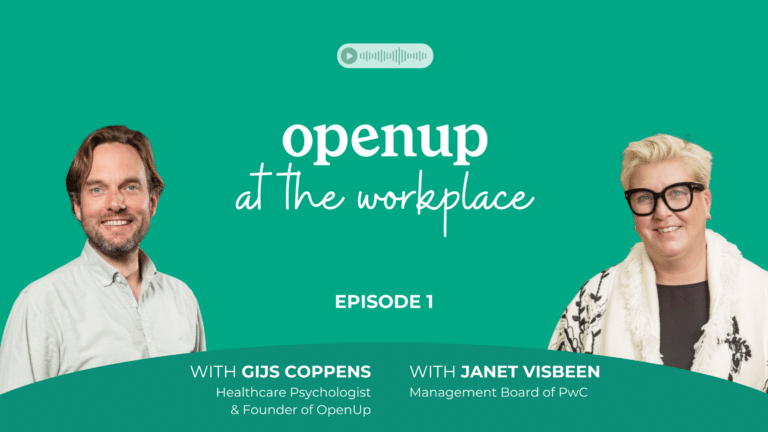It can’t have escaped your notice: we’re dealing with a massive labour shortage right now. There hasn’t been a shortage like this on the job market since the 1970s, and it’s creating a range of challenges – for you, but also for your staff.
How is the labour shortage affecting the employees who work for your organization? Is it having an impact on their mental health? And what can you do to support them?
Labour shortage across all sectors
From April to June this year, the number of job vacancies in the UK rose up to 1,294,000. According to the British Chamber of Commerce, the labour market remains “incredibly tight” and is a ticking time bomb for firms up and down the country. Hard-to-fill vacancies are particularly prevalent in education, transport and storage, and the voluntary sector.
According to The Economist, the pandemic is partly to blame. This is because it caused many employees over the age of 50 to retire early and leave the job market. Simultaneously, according to the Financial Times, Brexit is intensifying the issue, with industries dependent on migrant workers no longer able to recruit from abroad.
The demand for staff is also growing. This has been happening since 2013, but as we’ve been spending more money the COVID-19 pandemic, the demand for staff is continuing to rise. Finally, as reported by the Guardian, there has been a sharp rise in parents, particularly women, needing to leave the job market to care for their children.
The impact of the labour shortage on your employees
As an HR professional or manager, you’ll have undoubtedly seen the effects of the labour shortage. Your work will have suddenly become a bit more challenging, and chances are that the jobs of your colleagues have become harder too.
As a result more and more people are calling in sick with burnout symptoms. So, as an organization you get stuck in a vicious cycle: there are even fewer employees available to take on additional tasks.
Figures published by The Office for National Statistics show that more people are calling in sick: the sickness absence rate in the UK rose to 2.2% in 2021, up from 1.8% the previous year. This is the highest the rate has been since 2010. For NHS workers in England, the overall sickness absence rate was 6.0% in March 2022.
Psychologist Pia Linden explains: “I’ve spoken to a lot of people lately who say that their workload in particular is causing them stress. Many people are finding themselves in situations where they need to take on other people’s work. In some cases, these tasks are new or more difficult than their own range of tasks, and they’re not getting the correct support.”
What can you do?
During a labour shortage, the last thing you want is for more people to call in sick or resign. It’s more important now than ever to invest in preventative measures. So, what can you do?
Experts share their tips on labour shortage below:
Boyd Thijssens (President of the Dutch Society of Occupational Medicine, NVAB)
Boyd Thijssens advises companies to scale back their services in line with the current size of the workforce. This will reduce workloads “because this labour shortage could go on for some time,” says Thijssens. Otherwise, a domino effect might arise, with people calling in sick and creating even more pressure.
Psychologist Pia emphasizes this point: “It’s not a good plan to try and cram as much as possible into the days of your staff. Employees will feel under pressure because their employers will expect them to perform just as well (if not better), even though this is difficult during a labour shortage. It’s better to lower your demands in terms of employee performance.”
Marjolijn Pouw (Vernet, a company that tracks sickness absence rates for healthcare institutions)
According to Marjolijn Pouw, companies with low sickness rates all have one thing in common: they pay close attention to their employees on a personal level.
Managers are trained in how to talk to their teams and know how best to support them. This underlines the importance of sending managers on communication training courses and prioritizing conversations around mental health.
Jill Ader (Global Chairwoman of management consulting company Egon Zehnder)
Don’t focus on the labour shortage, instead, look out for the well-being of the employees you already have. That’s what Jill Ader advises.
“Think of all the years leaders have been putting their employees under pressure. That doesn’t work anymore. These days you need people who are creative. Those who experiment and feel safe.”
Ader recommends investing in managers who put in the effort to understand employees. Those who stop talking and start listening.
Here “investing” means learning new skills related to supporting and caring for your employees. This involves developing a new mindset where you allow the opinions and voices of other people to play a bigger role.
In this article about investing in mental health, we offer practical tips on how to improve employee mental health.
Focus on the well-being of your remaining staff
The labour shortage isn’t going away any time soon. Of course, it’s important to focus on attracting new people, but it’s perhaps even more important to pay attention to the well-being of the staff you already have.
You want to avoid people quitting or calling in sick due to pressure and stress. And subtly, this will also make you a more appealing employer to the new talent you want to attract.
We’re already helping over 550 companies with employee mental health! Want to learn more?





